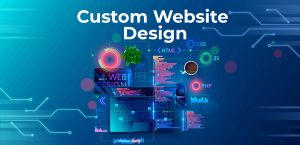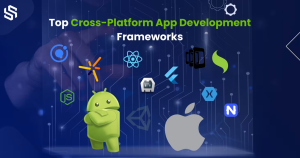Discover how AI strategy consulting accelerates digital transformation, boosts innovation, and empowers enterprises with ethical, scalable AI adoption.

-
What Is AI Strategy Consulting?
-
The Role of AI Strategy Consulting
-
Developing an AI Strategy: End-to-End Process
-
Driving Innovation and Competitive Advantage
-
Industry Applications
-
Emerging Trends
-
Best Practices
-
Conclusion
AI Strategy Consulting: The New Engine of Enterprise Transformation
In today’s data-driven economy, AI strategy consulting has become the foundation for sustainable innovation and competitive growth. Organizations no longer view AI as an experimental tool but as a strategic necessity. By aligning technology, data, and business objectives, AI strategy consulting helps enterprises design scalable, ethical, and transformative AI roadmaps.
AI Strategy Consulting: The New Engine of Enterprise Transformation
In the modern business landscape, AI strategy consulting has become essential for enterprises seeking to leverage artificial intelligence for innovation, efficiency, and sustainable growth. By bridging the gap between technical implementation and strategic vision, AI strategy consulting enables organizations to define, deploy, and scale AI solutions that align with their business objectives.
From assessing AI readiness and data strategy to governance, ethics, and change management, AI strategy consultants help companies build resilient, future-ready ecosystems — turning AI into a driver of transformation rather than a technological experiment.
In the contemporary business landscape, artificial intelligence (AI) has transitioned from a futuristic concept to a strategic imperative. Organizations seeking to harness AI’s transformative potential require not only technical implementation but also strategic guidance to align AI initiatives with business objectives. This is where AI strategy consulting plays a pivotal role, enabling enterprises to define, implement, and scale AI solutions that drive operational efficiency, innovation, and competitive advantage.
This article provides a high-level exploration of AI strategy consulting, detailing its methodology, frameworks, and real-world applications across industries. It also examines emerging trends such as responsible AI, AI ethics, AI-driven decision-making, and enterprise AI transformation frameworks, offering actionable insights for executives and technical leaders.
The Role of AI Strategy Consulting
AI strategy consulting encompasses advisory services aimed at guiding organizations through the complex AI adoption lifecycle. Unlike standard technology consulting, AI strategy consulting integrates business strategy, data governance, organizational change management, and AI technology expertise to deliver measurable business outcomes.
Key Functions of AI Strategy Consulting:
- Business Problem Identification: Determining high-value use cases aligned with corporate objectives.
- AI Readiness Assessment: Evaluating organizational maturity, data infrastructure, and workforce capabilities.
- Technology Selection: Recommending AI platforms, frameworks, and tools that meet enterprise requirements.
- Governance and Ethics: Establishing frameworks for responsible AI, compliance, and risk mitigation.
- Change Management: Ensuring seamless adoption, employee alignment, and cultural transformation.
By integrating these dimensions, AI strategy consultants bridge the gap between technology and business value, ensuring AI initiatives deliver tangible results.
Developing an AI Strategy: End-to-End Process

A structured AI strategy is essential for successful adoption and scaling. The following stages outline a comprehensive approach:
1. Business Problem Identification
The foundation of AI strategy lies in identifying high-impact business challenges where AI can create measurable value.
Steps Include:
- Conducting stakeholder interviews and workshops.
- Mapping key business objectives and pain points.
- Prioritizing AI use cases based on ROI, feasibility, and strategic alignment.
Example: In retail, AI can be applied to optimize inventory management, predict consumer demand, and personalize customer engagement strategies.
2. AI Readiness Assessment
Before deploying AI, organizations must assess readiness across multiple dimensions:
- Data Maturity: Quality, volume, diversity, and accessibility of enterprise data.
- Technology Infrastructure: Cloud readiness, computing power, and integration capabilities.
- Talent and Skills: Availability of data scientists, AI engineers, and domain experts.
- Cultural Readiness: Organizational openness to data-driven decision-making and AI adoption.
Example: A financial institution evaluating AI readiness may analyze transaction data quality, cloud architecture, regulatory compliance, and staff familiarity with AI tools.
3. Data Strategy Development
Data forms the backbone of AI initiatives. A robust data strategy ensures reliable, secure, and scalable access to high-quality information.
Key Components:
- Data Governance: Policies for data privacy, security, and compliance.
- Data Integration: Consolidation of siloed data sources across the enterprise.
- Data Quality Management: Ensuring accuracy, consistency, and completeness.
- Data Lifecycle Management: Structuring data pipelines for ongoing AI model training and monitoring.
Example: In healthcare, AI strategy consulting may recommend integrating electronic health records, imaging systems, and wearable devices to enable predictive patient analytics.
4. Technology Selection and Architecture
AI strategy consulting involves recommending fit-for-purpose technologies and architectures. Decisions include:
- Choosing between cloud-based or on-premises AI platforms.
- Selecting frameworks for deep learning, natural language processing, or computer vision.
- Designing scalable model deployment pipelines using MLOps principles.
Example: A manufacturing company may deploy computer vision models for quality assurance using GPU-accelerated cloud infrastructure combined with edge computing for real-time defect detection.
5. Governance, Ethics, and Risk Management
Responsible AI adoption requires frameworks for ethics, compliance, and risk mitigation. Key considerations include:
- Bias detection and mitigation in AI models.
- Transparency and explainability of AI-driven decisions.
- Regulatory compliance with GDPR, HIPAA, or industry-specific standards.
- Establishing AI oversight committees and audit processes.
Example: Financial institutions leverage explainable AI to justify credit scoring decisions and ensure regulatory compliance.
6. Change Management and Organizational Alignment
AI strategy consulting also addresses human factors, ensuring adoption at scale. Activities include:
- Training and upskilling employees.
- Communicating AI benefits and use case outcomes.
- Aligning business processes and incentives with AI-driven workflows.
- Fostering a culture of data-driven decision-making.
Example: In retail, AI-driven demand forecasting may require training supply chain managers to interpret predictive analytics and adjust inventory strategies accordingly.
Driving Innovation and Competitive Advantage

AI strategy consulting enables organizations to leverage AI as a catalyst for innovation rather than a siloed technical initiative. Key benefits include:
- Operational Efficiency: Automating routine tasks, reducing errors, and optimizing resource allocation.
- Enhanced Decision-Making: Leveraging predictive and prescriptive analytics to inform strategic choices.
- Customer Experience Optimization: Personalizing interactions and anticipating customer needs.
- Business Model Innovation: Creating AI-powered products and services that differentiate the organization in competitive markets.
Example: Healthcare providers use AI to predict patient readmissions, reducing costs while improving patient outcomes.
Industry Applications of AI Strategy Consulting
Finance
- Fraud detection and anti-money laundering using predictive modeling.
- Credit risk assessment using explainable AI frameworks.
- Algorithmic trading and market analysis with AI-powered insights.
Case Study: JPMorgan Chase implemented an AI strategy consulting program to optimize contract review processes, reducing legal review time from weeks to hours.
Healthcare
- Predictive diagnostics and personalized treatment recommendations.
- AI-driven patient engagement through chatbots and virtual assistants.
- Hospital resource optimization and predictive staffing.
Case Study: A leading hospital leveraged AI strategy consulting to integrate wearable data and electronic health records, enabling predictive care and early intervention for chronic conditions.
Retail
- Personalized marketing and recommendation systems.
- Supply chain and inventory optimization using predictive analytics.
- Sentiment analysis for customer experience enhancement.
Case Study: A global e-commerce platform deployed AI strategy consulting to implement demand forecasting models, reducing stockouts by 25% and improving delivery times.
Manufacturing
- Predictive maintenance for industrial machinery.
- Quality control through computer vision and anomaly detection.
- Process optimization using AI-powered simulations.
Case Study: Siemens partnered with AI consultants to integrate AI into their factory operations, resulting in 20% reduction in equipment downtime and improved product quality.
Emerging Trends in AI Strategy Consulting
Responsible AI and Ethics
Organizations increasingly prioritize ethical AI, ensuring fairness, accountability, and transparency in AI models.
AI-Driven Decision-Making
AI strategy consulting helps organizations embed AI insights into decision-making, transitioning from reactive to predictive and prescriptive approaches.
AI Transformation Frameworks
Comprehensive AI frameworks guide organizations through adoption, scaling, and continuous improvement, integrating technology, people, and processes.
Cloud, Edge, and Hybrid Deployments
AI strategy consulting includes technology architecture planning, recommending cloud, edge, or hybrid deployment to balance latency, privacy, and scalability.
Best Practices for Effective AI Strategy Consulting
- Align AI with Business Objectives: Start with measurable goals, not technology-first initiatives.
- Ensure Data Readiness: Establish data governance, quality control, and scalable pipelines.
- Adopt MLOps Practices: Standardize deployment, monitoring, and lifecycle management.
- Foster Organizational Change: Invest in training, communication, and cultural alignment.
- Embed Responsible AI Principles: Ensure ethical, transparent, and compliant AI deployment.
Conclusion
AI strategy consulting is no longer optional—it is a strategic imperative for organizations seeking to harness the transformative power of AI. By combining business acumen, technical expertise, and governance frameworks, AI consultants enable enterprises to identify high-value opportunities, implement scalable solutions, and drive measurable outcomes.
From finance and healthcare to retail and manufacturing, AI strategy consulting fosters innovation, operational efficiency, and competitive advantage. Emerging trends in responsible AI, AI ethics, and AI-driven transformation frameworks underscore the importance of strategic, thoughtful AI adoption.
For executives and technical leaders, partnering with AI strategy consultants provides a roadmap for navigating complexity, mitigating risk, and unlocking the full potential of artificial intelligence in the modern enterprise.


